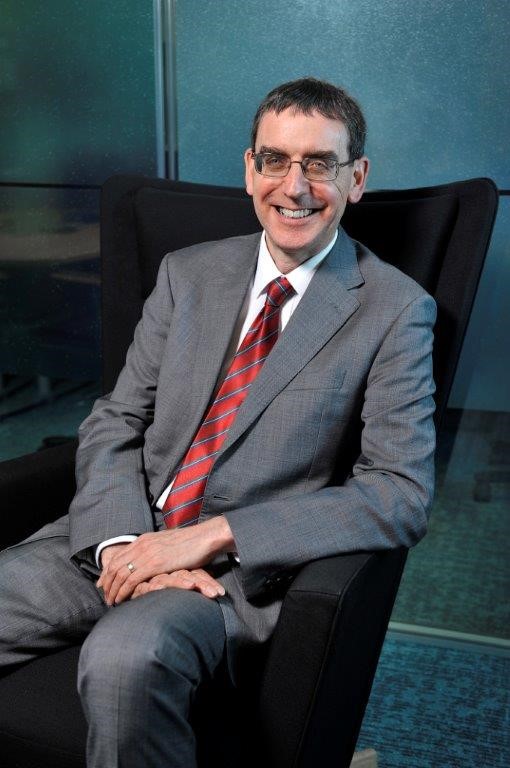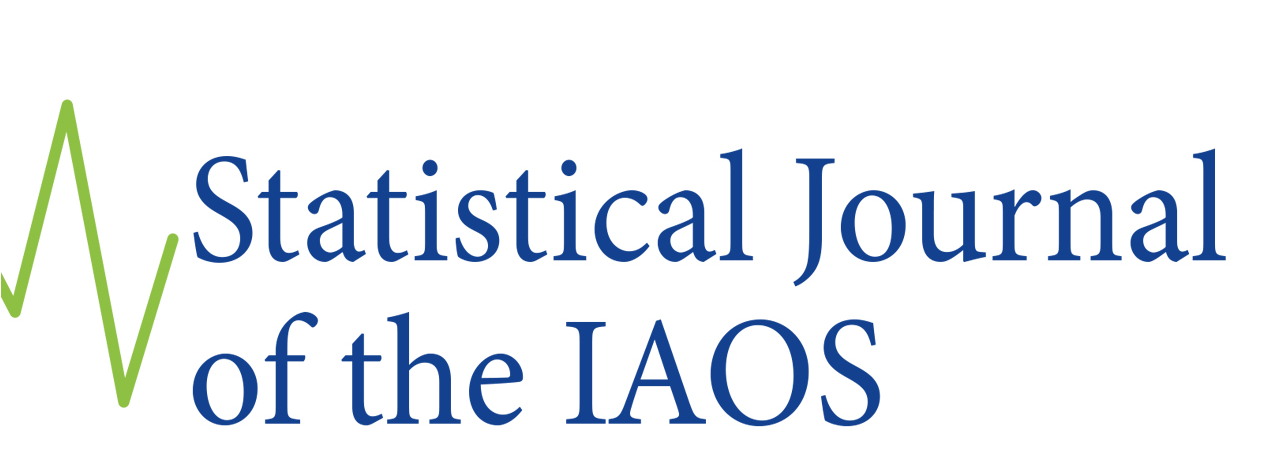

I think I had the drive from my mother to be the best that I could be, so I was going to push myself, but I don’t think I really had a destination in my mind. I just [knew] that I could be successful in using numbers, and I liked using them in a way that linked with society and the environment
By Katherine M. Condon, Ph.D., Interview Editor - SJIAOS
John Pullinger will be the incoming President of the IAOS. He also serves as the National Statistician in the United Kingdom’s Statistics Authority. In addition, he has served as the President of the Royal Statistical Society, and is a chartered statistician, as well as the inaugural chair of the Royal Statistical Society’s “getstats” campaign. John has also represented the United Kingdom internationally at the United Nations (UN), Organization for Economic Co-operation and Development (OECD) and the European Union (EU), as well as other forums.
In this interview, we will learn about how John became interested in statistics and how he entered the world of official statistics. While John will not be taking up his post of President of the IAOS until after the publishing of this interview, which took place at the IAOS biennial conference held September 2018 in Paris, we talked about his plans going forward and what he hopes to accomplish during his term.
INTERVIEWER: Thank you so much for allowing us to interview you. Let us start at the very beginning and go back to your childhood. What was it like growing up in your country?
I was born and grew up in inner London. I guess, my first impressions are that, my parents were both from very poor families, but they had a really strong commitment to education, hard work, and family. So, that kind of ethos of trying to be the best you can be was instilled in me from a very early age. I think my second reflection is my first school. My first school was very multicultural, even then in the 1960s.
I can remember a boy coming into my class from the Turkish part of Cyprus and just hearing about his experiences. But the one memory that most stuck with me was when I was eight years old. A natural disaster had occurred in a mining village, in Wales and many children had died as a result.
There was one girl in our class from Afghanistan. She said, "Oh, we must do something." And I'd never really come across this idea of being able to take action. She said, "We must raise some money. We must send some clothes. We must do ... "
But the fact that it was coming from her and she had such passion, even at the age of eight, stayed with me.
I still remember that now, and it gave me a sense of agency. I can picture her now as we speak.
So, I think there's two things. This idea of family wanting to improve, and this idea of a diverse community, being able to work collectively with a desire to get something done.
INTERVIEWER: Turning to your education, what was it like before university? And what made you get into the official statistics realm? I see from your CV that you were a statistician by training, so, did you have that burning desire with numbers from an early age? Or was it something that came on more slowly?
Well, the first thing to say is, that I was never top of the class in my school. However, there was one subject that I loved and I was very good at – and that was math.
So, I could very quickly understand the mathematical concepts and be really comfortable with numbers. Thus, this was the subject I was most successful at. However, the subject I loved was geography because I loved places. While I lived in a big city, I just loved the idea of the way that communities and places work. So, that made me apply for a degree in geography and statistics.
INTERVIEWER: So, this meeting’s geospatial overtone must be very interesting to you.
Absolutely.
INTERVIEWER: Looking back to our childhoods, we often find that a particular event or person had an impact on our later years. Did a particular person or event shape you into the person you are today?
I have to say the person that influenced me the most was my mother, because she had this passion for education. She was a little bit quirky, as well. [Laughter]
INTERVIEWER: Mother's always are. [Laughter].
No one in my family had been to university before. It was not very natural. I had thought ... and indeed, when I first left school, I did go to work in the building industry, which is where my father [worked] and that's what I thought I would do. But [my mother] said, "You must go to university. You must go to university." And so, I did [Laughter].
INTERVIEWER: That actually brings up an interesting question, in terms of England at that point in time, was going to university more of an elite kind of thing, or has it changed in terms of getting into university over time?
The levels of participation at university education have gone up a lot since then. But for me, there was nobody from my family that had gone [to university] before [me]. I didn't have [anyone else’s] experience to draw on.
So, it was unfamiliar to me. But it wasn't such a strange thing to do for my classmates, obviously. [There were a group of people that I could talk to and thus, I was able to] adjust to student life.
INTERVIEWER: While we did talk about your training as a statistician? Was there a particular individual/professor that inspired you into a particular area of statistics?
No. There are two things that I think stand out from my university statistics work/training. The first one was that we were required to do a thesis that combined both parts of our degree. So, for me studying geography and statistics] my tutor suggested this very interesting data set called the census.
So, I did an analysis of integration of different ethnic communities into different cities across Britain using three censuses. It was an opportunity to use a large data set and look both spatially and over time at diverse communities. So, this is official statistics. [Laughter].
That was the first thing. But the most striking course that I had was in my very first year. And [that] course was called "Social Trends" and the textbook came from the official statistics system. It had been created by someone who did the job that I am now doing. [Laughter]. [His name was,] Claus Moser, who later was a very important mentor to me.
He had this idea that if you could create good visualization of statistics, good graphics, and good words, that they would speak to people much more clearly than numbers [alone] could.
And so, this publication was all about turning numbers into stories that people could understand. This publication came out every year. So, the course was trying to think about these stories from numbers and how you collect them, where the data is coming from, how you join up different data sources to make sense of the picture.[...]
Would you like to read more about the early life, education and professional accomplishments of John Pullinger? Read the full interview here.
